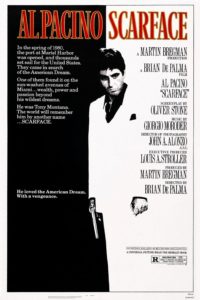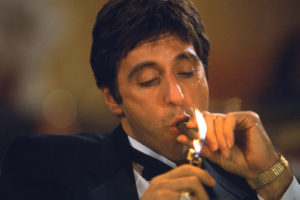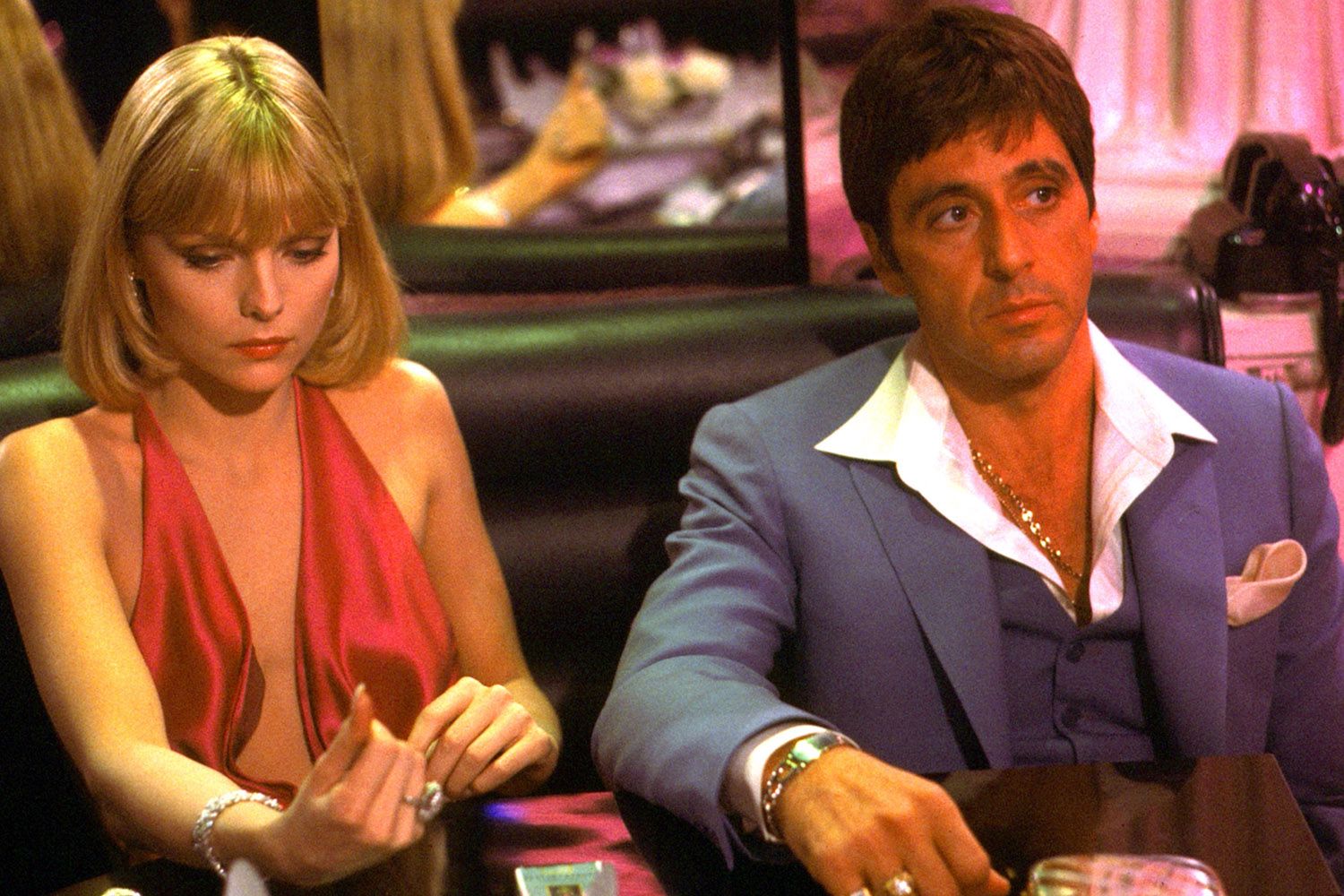Much like its central antihero, the film Scarface is preceded by its reputation for ultraviolence. Knowing that this was considered a film-bro classic, I went in with lowered expectations, but still hopeful I would at least get a good performance from star Al Pacino. As cautious as my optimism was, I was still disappointed to find Scarface a pointless and self-indulgent waste of time with excruciatingly racist and sexist elements.
AL Pacino Scarface Movie

Director Brian de Palma brings us this remake of a 1932 gangster film based on a book based on the life of Al Capone. All those “based on”s later, it’s a story about fictional drug lord Tony Montana (Pacino), a Cuban immigrant who uses violence and betrayal to leapfrog his adversaries (F. Murray Abraham, Robert Loggia, Steven Bauer, and Paul Shenar) to the top of Florida’s cocaine trade in the 1980s. He rises through the ranks motivated by a desire to support and impress his disapproving mother (Miriam Colón), drug addict girlfriend (Michelle Pfeifer), and awkwardly incestuous sister (everyone’s second-favorite actress named Mary Elizabeth: Mary Elizabeth Mastrantonio).

The drawn-out tale of ascension to lavish and illicit wealth ending in catastrophic collapse (the climax is a bloody shootout featuring Pacino’s infamous “say hello to my little friend” line) feels like a poor ripoff of a Martin Scorsese film, even though it predates Goodfellas by a solid seven years. There’s almost nothing interesting in the entire 170-minute run time. The dialogue is cheesy and the aesthetic is always either flat or gaudy with no inbetween.
The bigger problems, though, are misogyny and whitewashing. Montana constantly demeans and objectifies women up until the incident that leads to the shootout, in which he suddenly decides he can’t set off a car bomb if the target’s wife is in the car. It’s totally out of character and further clouds the already-murky morality of the screenplay. Writer Oliver Stone is outspoken about his communist beliefs, and yet his film work often gives confused and conflicting messages about communism. Montana leaves Cuba to flee communism and has some unfriendly takes on Fidel Castro’s regime and its seizures of land from the capitalist class. Nobody challenges his hatred of communism onscreen, so even if Montana is a monster, the audience isn’t given any reason to disagree with him about communism. I think an actual Cuban writer could have offered better insight into the complicated legacy of Castro’s early years.
That’s all on top of the casting of white actors in most of the Cuban roles. Sure, there are white people from Cuba–in fact, part of the tension that led to the revolution Montana flees from in the movie is the race-based wealth gap left behind by Spanish colonialism. But the Italian and English actors like Pacino, Abraham, and Mastrantonio are clearly supposed to be non-white Latinos and Latinas. Their skin is darkened from either bad tanning or straight-up brownface makeup, and their mother is played by a Puerto Rican Latina actress in Colón.

Worst of all is Pacino’s ham-fisted accent, which surpasses “white theater kid singing along to In the Heights in the car” levels of problem (it’s me, I’m the theater kid) right into the Speedy González zone. That’s not what Cuban people sound like. It’s a harmful caricature, much like the rest of this film that perpetuates stereotypes about the ruthless Latin kingpin who comes from a foreign land to kill people and sell drugs. It seems like de Palma wants us to consider Italian heritage “exotic enough” to pass as Caribbean, a tactic employed before by West Side Story, which also featured Mastrantonio and was part of the inspiration for In the Heights, which was recently defended from criticism for colorism by Puerto Rican West Side Story star Rita Moreno. It’s all connected!
Ultra-violent storytelling has never been my thing, but the issues with Scarface go beyond that. The film perpetuates harmful stereotypes about Latinx immigrants and uses gore and misogyny for shock value that never serves any purpose. The whole venture is frustratingly empty and left me desiring something more.


Comments